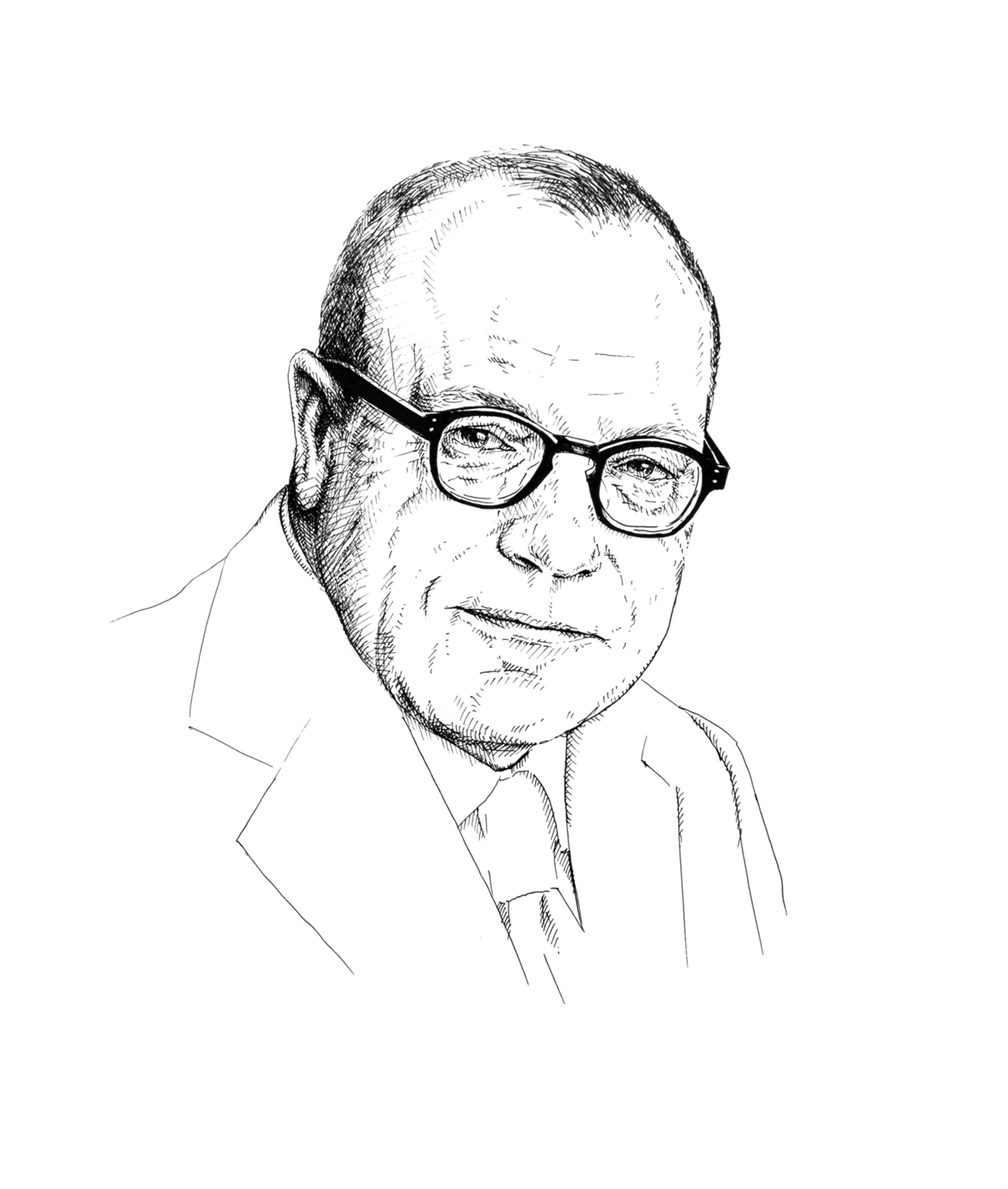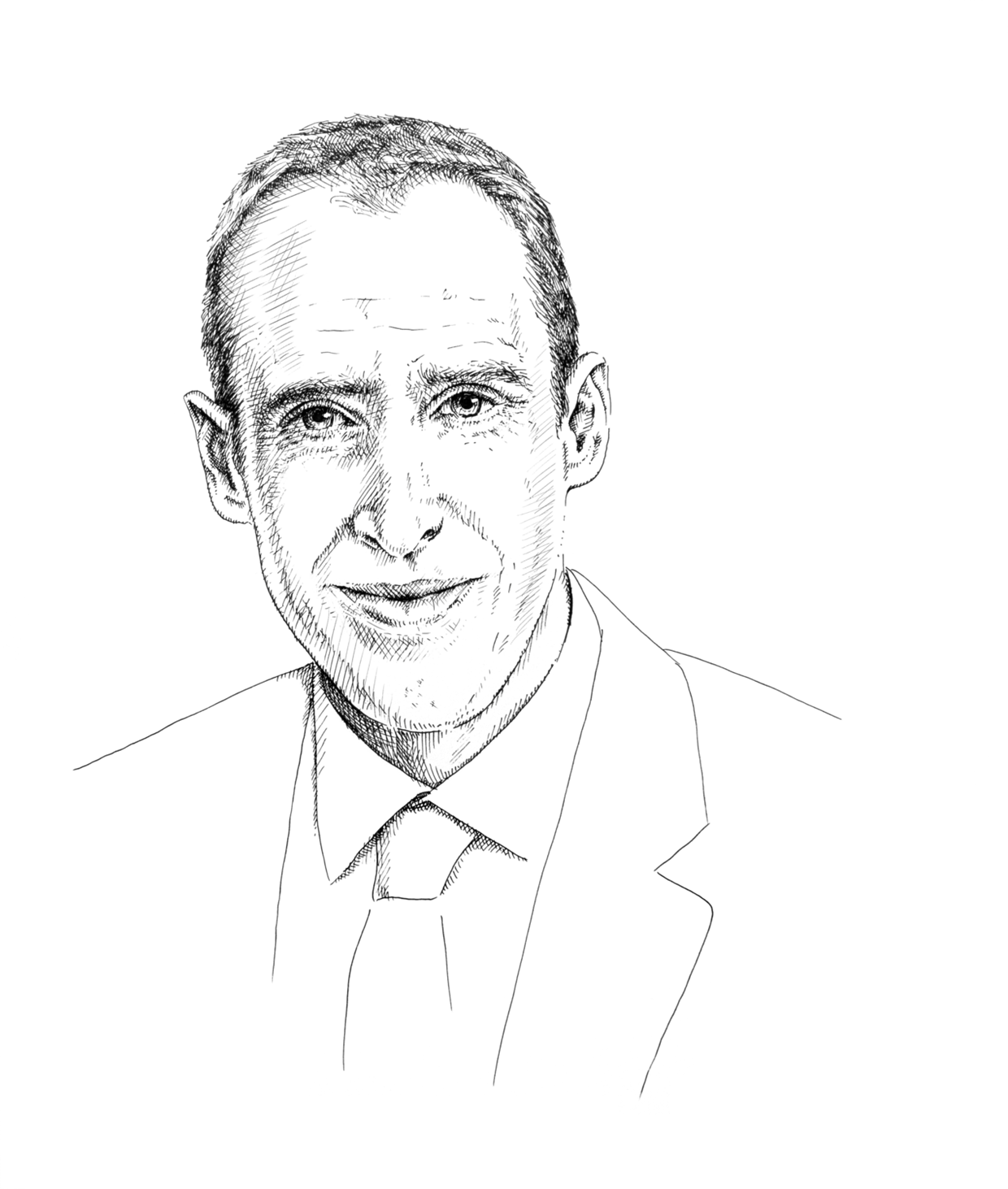Address to shareholders
Dear Shareholders,
Dear Sir or Madam
2020 was dominated by the coronavirus crisis. The pandemic represents a major challenge for the entire aviation industry as well as for Flughafen Zürich AG and is impacting all areas of our business. With a decline of over 30 million passengers to 8.3 passengers in 2020, Zurich Airport suffered a historic slump in traffic. As a company, we have demonstrated our resilience. Costs and investments were adapted to the new situation as best possible. In July, agreement was reached with all stakeholders on flight operations charges, creating planning security for all involved. Moreover, additional financing and the waiver of the dividend safeguard liquidity for the future too. Despite the serious consequences of the pandemic for aviation, we are taking a long-term view. For instance, the major project – the Circle – including the adjacent airport park was opened successfully. In October, the concession agreement for the construction and operation of the new airport in Noida, India, with a term of 40 years was signed. The forecast for the current financial year is still surrounded by a great deal of uncertainty, with passenger volumes in 2021 being primarily dependent on the point at which international travel picks up again. Thanks to flexible planning, motivated employees and professional cooperation with all airport partners, we are ready for a gradual resumption of travel, as soon as the medical situation permits. An advantageous passenger mix with a high proportion of travellers flying within Europe and to tourist destinations and a robust Swiss economy constitute favourable conditions.
ASSESSMENT OF THE SITUATION
Following a number of highly successful record-breaking years in terms of passenger volumes, profit and quality, in 2020 we experienced a previously unprecedented collapse in air travel due to the coronavirus pandemic. Despite air traffic coming to an almost complete standstill in the spring, Zurich Airport always remained open. Even in these challenging times we were therefore able to fulfil our public service mandate and maintain Switzerlandʼs aviation links to the world so that repatriation, air freight and ambulance flights could continue to operate, along with a few passenger flights.
After signs of a slight pick-up in international air travel in the summer of 2020, passenger numbers and traffic slumped once again following the imposition of travel restrictions and quarantine rules. Constantly changing travel rules and the differing regulations in various European countries created a high level of uncertainty for passengers, making it difficult for them to plan any journeys. Air freight proved to be a valuable mainstay for the remaining intercontinental flights. Within Europe it was predominantly passengers who either worked abroad or had family members living abroad who were still travelling.
The good constructive working relationships between all the airportʼs partners were particularly important and valuable in this difficult year. These enabled us to coordinate our efforts to adapt to the ever-changing conditions so that Zurich Airport was able to continue operating smoothly at all times. Also important was the implementation of our protection concept and elevated hygiene practices at the airport in order to ensure the safety of passengers, visitors, commuters and employees alike.
Financially, the situation presents a major challenge to our company. Aviation revenue is decreasing in line with the slump in traffic and passenger numbers, while fixed infrastructure operating costs remain high. Our commercial operations are suffering not only due to falling passenger numbers; the government-imposed lockdown also resulted in significantly fewer commuters, employees and visitors passing through the airport. The company’s relatively strong real estate portfolio – in comparison to other airports – that generates third-party income proved to be a valuable bulwark and worthwhile diversification strategy.
In response to the crisis, Flughafen Zürich AG was very quick off the mark in taking steps to reduce operating expenses and revise our investment plans. The introduction of short-time working also played a key role. Further measures included suspending dividend payments for the 2019 financial year, and significantly boosting our liquidity reserves through additional borrowing on the capital market.
Apart from the short-time working support available to all companies, Flughafen Zürich AG has received no government assistance or other public funding. In the past we have always maintained a very solid balance sheet and a high level of internal financing, which has proved beneficial now. The debt-equity ratio of our company has risen as a result of our additional borrowing. Even though we still have a very good financial rating, we intend to restore our previous balance sheet strength by maintaining strict cost and investment discipline over the next few years so we will always be in a position to weather any future crises too. The regulations relating to airport charges are also a crucial factor here.
Passenger volumes in 2021 will depend primarily on the point at which international travel picks up again. Acceptance of vaccinations and negative test results in order to travel freely will play an important role in aviationʼs return to normality. The situation is set to remain very dynamic, and we cannot discount the likelihood of short-term setbacks. As our passenger mix comprises a high proportion of travellers within Europe coupled with a relatively low number of transfer passengers and business travellers compared with other hub airports, we are well placed to take advantage of the recovery when it comes.

Andreas Schmid
Chairman of the Board of Directors
“The coronavirus pandemic represents a major challenge for the entire aviation industry and is impacting all areas of our business. At times air traffic almost came to a complete standstill, but Zurich Airport always remained open to maintain Switzerlandʼs links to the world. Thanks to our forward-looking management, we are able to weather this unprecedented crisis under our own steam.”
FLIGHT OPERATIONS
AIRPORT CHARGES NEGOTIATIONS
Negotiations have now been successfully concluded, thus ensuring long-term planning certainty for all parties. The current charging period which commenced in 2016 has been extended and, although minor adjustments have been made to the charging structure, the level of charges remains broadly unchanged. A temporary 10% cut in flight operations charges (excluding emission and noise charges) was also agreed in order to help the airlines ramp up their operations again. The flexible duration of the charging period allows the high level of uncertainty about future developments in the aviation industry to be taken into account, and also enables Flughafen Zürich AG to offset the loss posted in the past financial year and the temporary reduction in charges in 2021.
CO2 ACT AND FLIGHT TICKET LEVY
Following the adoption of the CO2 Act, among other things, the Swiss Federal Assembly decided to introduce a CO2 levy on plane tickets in Switzerland. Regrettably, it is unlikely that these additional charges imposed on air travellers will prove to be of any benefit to the aviation industry. The intended charges are higher than in neighbouring countries, which weakens the competitiveness of Swiss aviation. The use of sustainable aviation fuel (SAF) currently holds the greatest potential for reducing carbon emissions. The CO2 legislation must include workable means of rapidly boosting the commercial viability of SAF with the resources generated. Along with adopting a coordinated Europe-wide approach, ring-fencing the money raised from the CO2 levy on plane tickets could enable the aviation industry to achieve carbon neutrality much sooner. The CO2 Act as it currently stands does not create the right incentives so we will be rejecting this proposal in the referendum scheduled for June this year. Nevertheless, we are actively committed to further increasing the contribution of the aviation sector to climate protection.
SOUND INSULATION PROGRAMME
During the year under review the “2010 programme” and the “2015 sound insulation programme” were merged to form the “Zurich Airport sound insulation programme”. Its scope was also extended. Despite the low volume of traffic at present, sound insulation measures continue to be implemented. In total, our investments in sound insulation amount to approximately CHF 400 million. Provisions have already been set aside for these costs. Payments are due to be completed by 2030.
AWARDS
Despite the dramatic collapse in traffic volumes, we are maintaining our high standards of service and are delighted to report that yet again this year the airport has been commended for its service quality. Following on from 2006, 2008 and 2018, this is the fourth time Zurich Airport has taken first place in an ASQ Award in the category “25–40 million passengers in Europe”. The ASQ Awards are presented annually by Airports Council International (ACI) World, the international umbrella organisation for airport operators. Zurich Airport also received the prestigious World Travel Award for the best airport in Europe for the 17th time in succession.
REAL ESTATE and COMMERCIAL CENTRES
Thanks to a high proportion of fixed income, our revenue from facility management proved to be the most stable pillar of our business model over recent months. Where necessary, we were able to reach agreements with our partner companies to deal with this exceptional situation on the basis of mutual understanding and trust. We suffered a drop in earnings primarily in our commercial activities involving contractually agreed variable income – above all during the spring lockdown, but also again at the end of 2020 when all restaurants had to close and all shops had to shut on Sundays and holidays. However, during the reporting period we were able to celebrate a number of openings: a Jelmoli store, an Omega boutique and a Brezelkönig outlet airside, along with an expanded coop branch and a Hallhuber fashion boutique in Airport Shopping.
CONSTRUCTION PROGRESS AND OPENING OF THE CIRCLE
At the beginning of October the University Hospital, the Childrenʼs Hospital and the Balgrist Clinic were able to commence operation in the Circleʼs walk-in healthcare centre. The Circle opened on 5 November with numerous shops and restaurants, including a Jelmoli Lifestyle House and a Sports House at the main square, a flagship Omega brand boutique, as well as concepts from Anecdote by Dufry, Läderach Chocolatier Suisse, Sapori dʼItalia and DLUX Hair. The prestigious rooftop restaurant Sablier, Leonʼs Loft on the main square and the two restaurants Rice Up! and lʼOro di Napoli represent the range of culinary options on offer. Approximately 60,000 m2 of office space has been let to leading companies in the technology, pharmaceutical and financial sectors. Flughafen Zürich AG has now also moved its headquarters into the Circle. New office tenants have been moving in steadily since the opening. As a result of the coronavirus pandemic, the opening of the Hyatt Regency Hotel and its associated Convention Center, bar and restaurant has been delayed. Along with the second hotel in the Hyatt Group – the Hyatt Place – and the remaining Brand Houses along the lanes, the remaining office space and the Art Hub will gradually open in the course of 2021. All construction work should be completed by the early summer of 2021. The construction costs are within the earmarked budget. The overall occupancy rate of the Circle is around 85%.
The Park
At the same time as the Circle, the adjacent 80,000 m2 park also opened as a new green recreation space directly at Zurich Airport. Aiming to strike a balance between nature and visitors to the park, the unique charm of this location foregrounds the experience of nature. It is already clear that the park is set to become a new popular go-to destination within walking distance of the airport.

Stephan Widrig
Chief Executive Officer
“The opening of the Circle was one of the highlights of 2020. Switzerlandʼs largest construction site has been transformed into the new city district at Zurich Airport. Two hotels with a congress centre, numerous shops and restaurants, headquarters for international companies and premises for medical services are increasingly turning the airport into a complete urban centre.”
DEVELOPMENT PROJECTS and INFRASTRUCTURE
Our major projects have multi-year development, planning and implementation phases and go on to operate over many decades. It is also necessary to carefully maintain our infrastructure and real estate in order to preserve their value. We are confident that passenger volumes will rise again and that Zurich Airport will continue to be an intercontinental hub in future. Due to the lower traffic volumes, we are keeping the necessity of capacity-related investments under constant review and delaying them where appropriate. Although we are still pursuing our strategic projects and our high quality standards, we have significantly reduced the level of investment for projects at Zurich Airport over the coming years to around CHF 200–220 million per year.
Against that backdrop, the following projects were progressed during the reporting year:
UPGRADING AND EXPANSION OF BAGGAGE SORTING SYSTEM
This project is being implemented as planned. Despite temporary interruptions in some foreign supply chains, the overall schedule has not been affected. The building envelope has been completed, and the interior fit has commenced. Capacity-related elements are currently under review and will be postponed if necessary. This will bring the costs down to less than CHF 400 million.
EXPANSION OF LANDSIDE PASSENGER ZONES
This project is pivotal for the use of all landside zones. The below-ground engineering works continued in 2020. The above-ground work will commence slightly later than planned. Opening of the new landside passenger areas is now scheduled for the end of 2026. These will include new retail outlets, underground logistics and a food hall above ground.
DEVELOPMENT OF THE MAIN AIRPORT COMPLEX
The competition is currently at the dialogue stage and will be concluded in 2022. In stage 1 of the competition, ten participants submitted a study. Owing to the current situation, the decision on stage 1 that was scheduled for mid-December 2020 was postponed until 2021. By running the competition, Flughafen Zürich AG is seeking to renew parts of the ageing central airport infrastructure. This project will be run at a later date.
TAXIWAY ROUTING AROUND RUNWAY 28
In May, the Federal Office of Civil Aviation (FOCA) published the planning application for a taxiway routed around runway 28. Irrespective of the current situation, the intention remains to eliminate over 100,000 runway crossings across runway 28 in order to significantly reduce the complexity of airport operations.
SECOND STAGE OF ZONE WEST DEVELOPMENT
The second phase of work in this zone, involving extending the existing apron by around ten hectares in the direction of the River Glatt, commenced in the spring. The project was put on hold once the excavation work had been completed. It will now be suspended for several years until such time as it is likely to be required. The popular plane-spotterʼs hill will therefore remain in the same location for the time being.
CLIMATE GOALS
As the operator of Switzerlandʼs largest airport, we are doing our bit to make the aviation sector climate-friendly. We are aiming to cut our own CO2 emissions to net zero by 2050. In September, we produced a reduction roadmap setting out concrete measures to achieve this goal. Among other things we plan to renovate buildings, install modern energy supply systems and pursue our commitment to virtually carbon-neutral alternative fuels.
With the opening of the Circle, Flughafen Zürich AG has shown that a carbon-free future is possible. The complex seeks to improve efficiency and employs alternative energy sources, for example solar electricity, systematic heat recovery and seasonal underground thermal energy storage. The Circle operates with virtually no fossil energy sources and will be LEED® PLATINUM and MINERGIE certified.
INTERNATIONAL AIRPORT BUSINESS
The focus of our international business is currently on the two markets in Brazil and India. At the beginning of the reporting year we took over operational management of the two Brazilian airports Vitória and Macaé. In Latin America, too, airports suffered a dramatic slump in traffic in 2020. Various measures taken at our eight airports ensured that liquidity was protected despite the minimal level of operations. Since the travel restrictions were imposed by official order, the airports in Brazil are entitled to compensation from the respective authorities. In Chile, the duration of the concession was extended for the two airports there. Negotiations regarding these measures are still ongoing.
In October last year we signed the concession agreement for Noida International Airport in India. The concession for building and operating this new airport 80 kilometres south of Delhi in the Greater Noida Area is for a term of 40 years. The investments associated with the first phase of construction amounts to approximately CHF 650 million. Once this first phase is operational, the new airport will have the capacity to handle at least 12 million passengers a year. The Indian licensed company, established for this purpose, is wholly owned by Flughafen Zürich AG.
OUTLOOK AND THANKS
Despite all the challenges, we confidently look forward to the future and are convinced that the aviation industry will recover in the medium term. Financially and organisationally, Flughafen Zürich AG was well prepared for the crisis and at all times was able to act autonomously in our own long-term interests. A well diversified business model and a low level of indebtedness have once again proved their worth.
We would like to thank all partners and supporters of Zurich Airport, and especially our employees for their exceptional commitment to our company and to Zurich Airport in general.

Andreas Schmid
Chairman of the Board of Directors

Stephan Widrig
Chief Executive Officer

